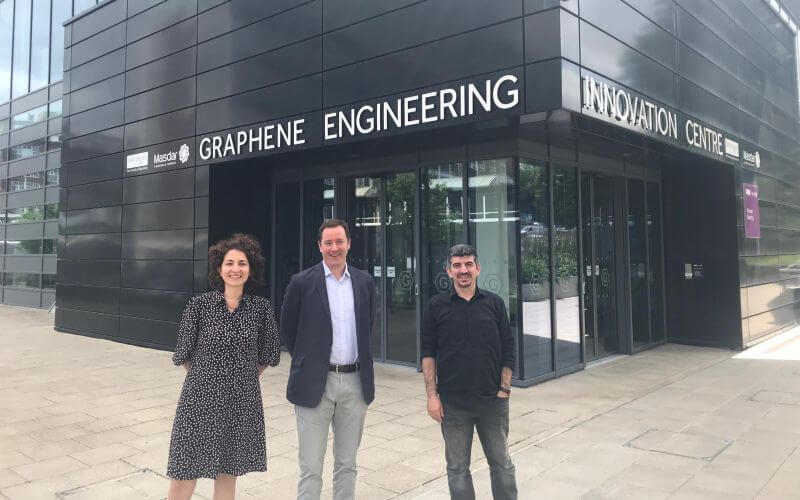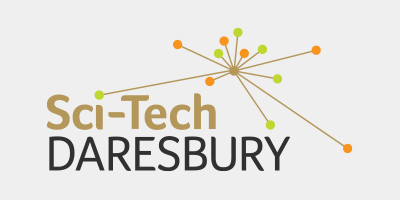November 26, 2021
Graphene stops satellites from getting too hot or cold
A UK start-up is using graphene technology to transform how satellites in orbit regulate their temperature.

Space is a place of wide extremes, and this includes temperatures – between sun-facing and earth-facing aspects, a satellite can experience temperature variations of more than 400 C.
The consequences of a satellite getting too hot or cold can be far reaching, from disruption to the apps we use every day to severely affecting our Emergency Services. Current thermal management options are large, heavy and involve high power consumption, which can rapidly deplete a satellite’s power reserves.
Smart solutions for satellites
A spin out of the University of Manchester, SmartIR is developing a cost-effective solution that will enable satellites to control thermal radiation on demand.
Its graphene-based smart coating for satellites will enable them to manage thermal energy in real-time, depending on whether a satellite’s surface is Earth’s shadow or on the side closest to the sun.
SmartIR’s radiators are an ideal solution for maintaining temperatures within acceptable temperature conditions because they:
- are lightweight
- have low power consumption
- respond swiftly to changes in temperature
- operate over the entire infrared spectrum
- involve no moving parts.
Business support for space solutions
SmartIR is the latest company to join the European Space Agency Business Incubation Centre United Kingdom (ESA BIC UK) at the Science and Technology Facilities Council’s (STFC) Daresbury Laboratory. Here it is taking advantage of the funding and support available in space and satellite technologies to further this commercial development.
The ESA BIC UK is part of the world’s largest business incubation programme for space tech start-ups. It has helped more than 100 businesses in their mission to develop game changing products and services for an increasingly competitive, global market place.
It is managed and partly funded by STFC, in collaboration with:
- ESA Space Solutions
- the UK Space Agency
- the University of Leicester.
Commercial developments for space
Prof Coskun Kocabas, SmartIR’s Scientific Director and co-founder, said: “There is a clear need for a cost-effective solution that will enable satellites to regular their temperature automatically and in real time. Applying graphene technology to space industry is a fantastic opportunity to take the capabilities of current thermal management systems to a new level, whilst significantly reducing satellite power consumption and cost.
Our current primary focus is on the testing and validation of our patented technology to meet the requirements of the space industry. Being part of the ESA BIC UK, with access to funding, space facilities, business support and valuable collaboration opportunities, is incredibly important to us.”
SmartIR’s location at STFC’s Daresbury Laboratory, at Sci-tech Daresbury in the Liverpool City Region, positions it firmly within the North-West Space Cluster. Funded by the UK Space Agency and led by STFC’s Daresbury Laboratory, this multi-partner project is being set up to enable north-west businesses to play a more significant role in the rapidly expanding multi-billion-pound UK space sector.
Paul Vernon, Head of STFC’s Daresbury Laboratory, said: “UK start-ups are increasingly using space technologies to create new products and services, whether that’s for use here on Earth or for satellites in space. To see SmartIR incorporating graphene-based technology in to satellite technology is really exciting. I’m particularly thrilled to see a University of Manchester (the home of graphene) spin-out join the ESA BIC UK at Daresbury, and to be able to provide the essential support it needs to bring its game-changing technology to commercial reality.
The space industry is a priority for regional economic growth across the UK and I’m thrilled to be able to support SmartIR in the development of such pioneering technology. I wish it every success as it takes its technology to the next level.”
World leading expertise
Part of the ESA Space Solutions network of successful ESA BICs across Europe, the ESA BIC UK provides up to 15 start-ups every year with a combination of funding and access to world leading:
- technical expertise
- facilities
- business development support.
This is in addition to the benefits that being part of a flourishing and unique network of science and innovation campuses can bring.
Further information about support for businesses and SMEs at Daresbury Laboratory and across STFC more generally, is available on the STFC website.



